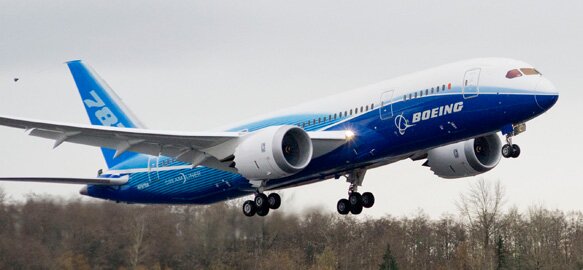
All joking is aside in the August update from Washington State’s Economic and Revenue Forecast Council. Chief economist Arun Raha’s deadpan wit–and any optimism–seem to have deserted him. The full sails on a becalmed jobs sea belong to Boeing, whipped from complacency by competitor Airbus.
The Puget Sound Business Journal reports that Boeing’s Jim Albaugh is making noises that re-engining may be in the cards for the 777 as well as the 737. That should all be good news for the Puget Sound region, since production speed is key, and Boeing’s largest, tested workforce resides here.
Writes Raha:
Boeing is growing again. The aerospace sector has added 6,200 employees since the trough in May 2010, more than all the jobs lost from the previous peak in February 2009 through the trough. We expect the aerospace job growth to continue over the next couple of years as Boeing plans significant production increases in all five models of commercial aircraft. Between now and early 2013, total production will rise from the 42 planes per month to 60 planes per month, an increase of more than 40%.
That’s well and good, says Raha, but “Boeing cannot, by itself, save us from the impact of another slowdown in the U.S. economy.” Recently, Raha has made a point of looking for upsides, saying that barring this or that unforeseen incident, the state can expect modest growth. Yet, since 2008, the winds have refused to blow fair. Now the disruption of the Japan earthquake has been followed by a summer of wrangling over the emperor’s new debt ceiling, and even incremental recovery has stalled out:
Major General Fund-State (GF-S) revenue collections for the July 11 to August 10, 2011, collection period were $9.4 million (0.8%) below the June forecast. Cumulatively, collections are $30.8 million (1.3%) below the forecast.
Concludes Raha, “Consumer confidence is in the tank. The risk of the economy slipping back into recession has increased significantly.” Earlier, Gov. Gregoire asked state agency management and employees to prepare themselves for more budget hacking, “as deep as 10 percent, or $1.7 billion, in January,” reports the Olympian.